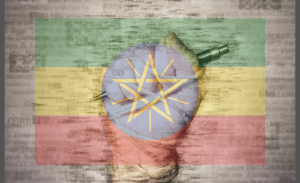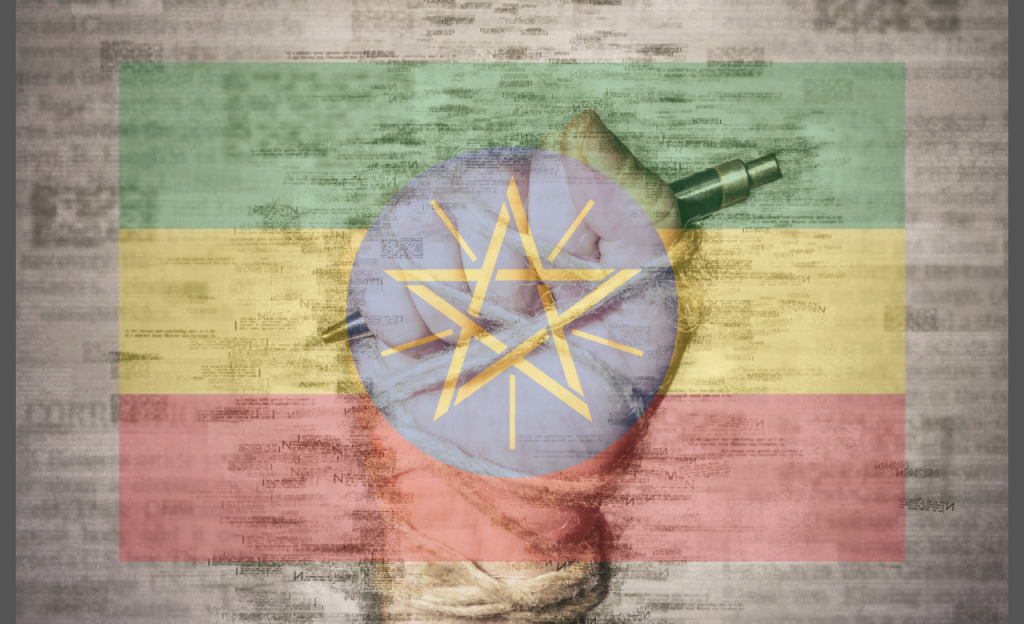Departing further from press freedom the Ethiopian Media Authority EMA recently expelled The Economist magazine’s correspondent Tom Gardner. In a statement released by the media regulator on May 13th 2022, Gardner’s press accreditation was withdrawn for what it termed as “breaching professional ethics” and the “rules and regulations of the country”. Claiming that several discussions were held with the journalist before arriving at their decision, the EMA gave the reporter 48 hours to leave the country while indicating its willingness to grant a license to another correspondent from the British publication.
The action elicited furious condemnations from press freedom advocates who dismissed the statement from the authorities, saying it has become a consistent trend. “When international journalists are expelled while local members of the press face the threat of arrest, the message is clear: Ethiopian authorities will not tolerate critical journalism or dissenting opinions,” said Muthoki Mumo, the sub-Saharan representative of the Committee to Protect Journalists CPJ. Meanwhile responding to the government’s position that the correspondent “failed to live to [the] standards of conduct for journalists”, The Economist defended Gardner, stating that his reporting on Ethiopia “has been professional, unbiased and often courageous”.
Journalists have traditionally been the target of some African leaders who wish to escape accountability for their actions. Prime Minister Abiy Ahmed seems to be using the same playbook. His recent policies have ushered a gradual and worrying descent of the East African nation into an authoritarian state. Reporters in the country complain of constant aggression from the authorities and lack of access to the frontlines where human rights abuses have been alleged. The government has blamed foreign interference, an increasing lack of professionalism, fake news and extreme views across the media for its actions. Yet, there can be no justification for the wanton arrest or expulsion of journalists.

Since war broke out in the northern region of Tigray in November 2020, the government in Addis Ababa has been repeatedly accused of suppressing dissent and forging a hostile environment for media practitioners. Many journalists are languishing in jail for prolonged periods without trial. Paradoxically this is happening under the watch of a man who was decorated with a Nobel Peace Laurel in 2019 after he released thousands of political detainees, including journalists promising an end to media censorship. In May 2021, New York Times Journalist Simon Marks was expelled from the country in a similar manner as Gardner. This year there appears to be an even more determined campaign to stifle press freedom. Last April, an official from the Ethiopian attorney general’s office had earlier lamented the reluctance of the police to tackle disinformation and hate speech. As security operatives embarked on the indiscriminate arrest of local journalists and clampdown on protests, the Ethiopian Media Authority announced that it had filed criminal cases against at least 25 media outlets in the same month. As of the end of May 2022 over 20 media employees have been detained.
Press freedom as a fundamental principle of democracy should be considered a right to be exercised freely. Government agencies have a responsibility to let media professionals do their job freely without any fear of harassment and intimidation. But the pressure from the Ethiopian government has made some journalists consider quitting or fleeing to nearby countries, while others subdue their reports for fear of persecution by government agents. In the latest World Press Freedom Index, Ethiopia ranked 114th, down 13 places from its ranking last year. Surely, this situation is counterproductive, especially for a nation involved in a conflict. While the truce announced by Ethiopia’s federal government holds nearly two months after it was announced, there are reports that factions involved in the Tigray conflict are readying themselves to fight again. With the growing concerns that the country’s fragile peace may shatter will the leaders of Ethiopia intensify or reverse their efforts to muzzle an independent press? I believe that many Ethiopians would bet on the former.






